Distributed Algorithms, WDAG ’92, Springer Verlag, Lecture Notes in Computer Science Series, No. 647
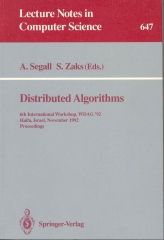
WDAG is intended to provide a forum for researchers and other parties interested in distributed algorithms and their applications. The aim is to present recent research results, explore directions for future research, and identify common fundamental techniques that serve as building blocks in many distributed algorithms. Papers were solicited describing original results in all areas […]
Technology and Ethics, Proceedings of the Whizin International Symposium, Haifa
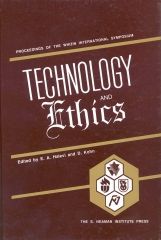
This publication summarizes the Proceedings of the first International Symposium on Ethics and Technology, held at the Technion on July 18-19, 1992 as a cooperative venture of the Technion and the University of Judaism in Los Angeles. The interface between science and technology on the one hand and ethics – in particular from a Jewish […]
Use of Alternative Energy Sources in Light of the Persian Gulf Crisis

Scientific lectures at popular level on the subject of Alternative Energy sources specifically in Israel. The lectures cover most alternative energy sources and the lectures are proposed for decision makers in the civil and economic sector.
An Examination of the Wage System of Technion Professors – Current Problems and Solutions
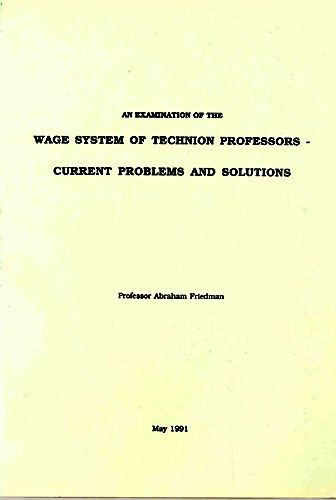
The salaries of about 90% of the wage earners in Israel are set through collective bargaining. About 90% of these wage earners are represented by one labor union – The General Federation of Workers (Histadrut). Salaries at the Technion, like in all the public sector are set through collective bargaining. The union that represents all […]
Absorption of Soviet Immigrants at the Technion
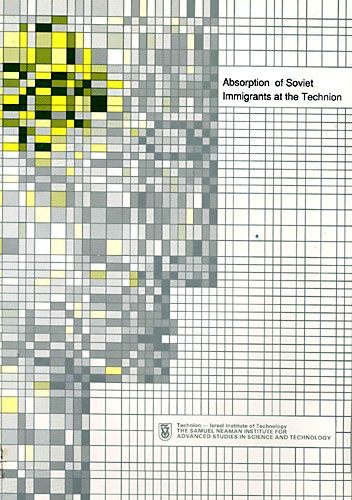
This report describes the Technion’s activities in absorbing immigrant students, scientists, research engineers, the Centre for Pre-University Studies, special courses carried out by the Samuel Neaman Institute, the Division of Continuing Education and External Studies and the entrepreneurial projects already in progress. The report was prepared by the Samuel Neaman Institute, following its pioneering effort […]
Principles and Systems for Planning of Human Resources in Research and Technology in the OECD Countries, and Lessons for Israel
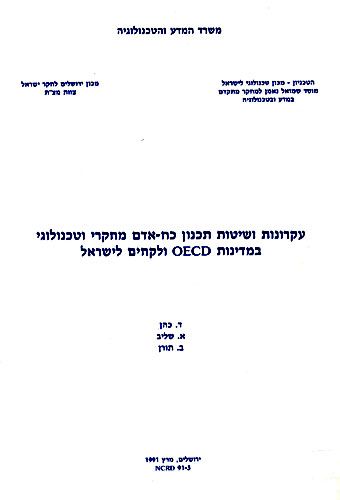
The aim of manpower planning is to ensure efficient use of human resources in a certain country or economic branch, or in a certain company from the point of view of both economic and social development. Opinions differ as to the need for manpower planning and even among those who believe that manpower planning is […]
Plastics in the Environment – Ecology

Israel’s future, security and prosperity depend on economic independence. Israel’s industry, especially the export industry, must be the central and decisive driving force toward economic independence. Industry can show some impressive achievements, but more significant growth is needed to reach economic independence. The Samuel Neaman Institute for Advanced Studies in Science and Technology began a […]
Our Collective Future – Ecology and Tomorrow’s World
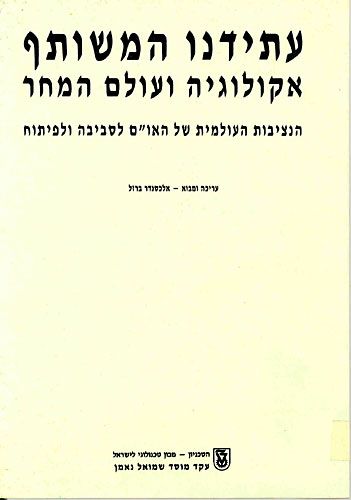
A new horizon of the history of mankind opened at the end of the 20th century. Facing the new picture of the world, arising out of the growth of the technological culture, everything has to be thought about from now on, from assumptions of values, through principles of deed, to details of execution. The enormous, […]
Development of Higher Education Systems in the Arab Countries – 1965-1988, the Quantitative Dimension. Report No. 7 (for internal use) Project No. 161
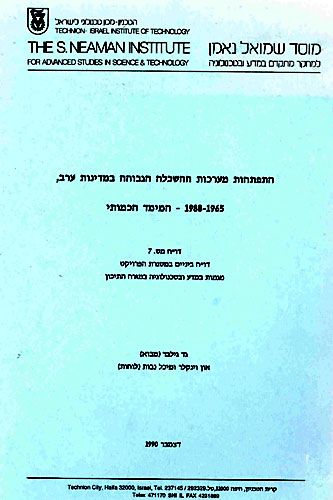
During the 1970’s and the second half of the 1980’s the systems of higher education in the Arab countries underwent several transformations which fundamentally changed it. These transformations are divided into three main categories: (1) quantitative changes; (2) quantitative changes that, in themselves, have qualitative implications; and (3) clear qualitative transformation (a-priori). In this brochure […]
The Impact of Computers on Teaching and Research in Mathematics and Related Subjects
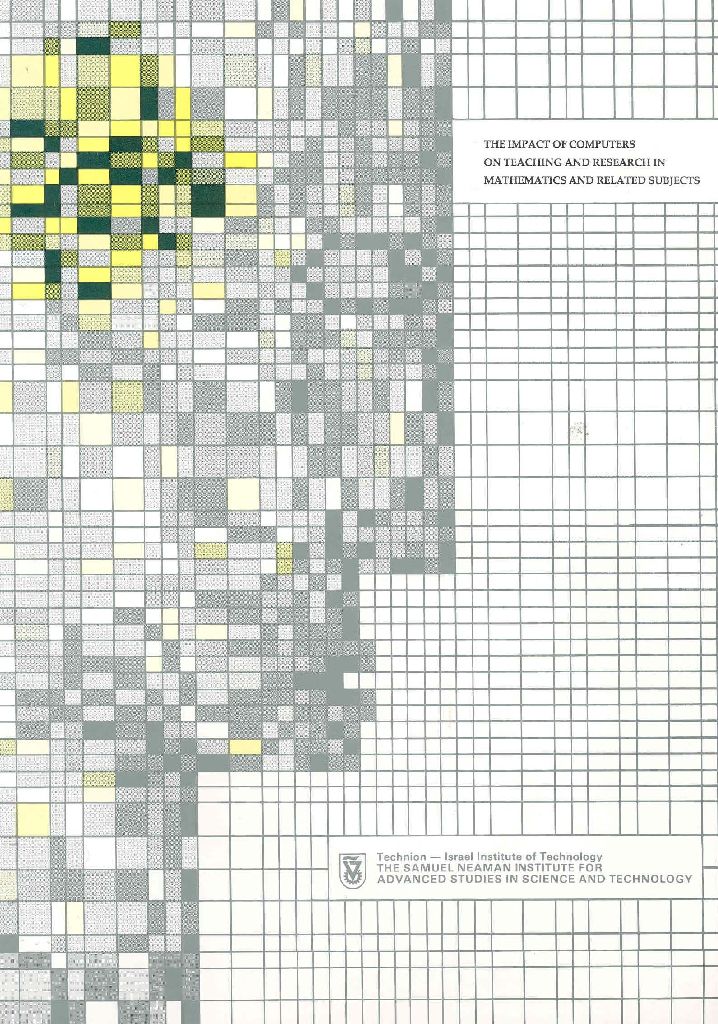
The Neaman Institute/Technion Committee for Mathematics and Computers in the Teaching Schedule was appointed by Prof. B. Silver and Prof Z. Tadmor On 26 January 1989. The objectives of the committee as defined in the appointment letter were: a. To study in depth the scope and contents of the expected and desired mathematical foundations in […]
